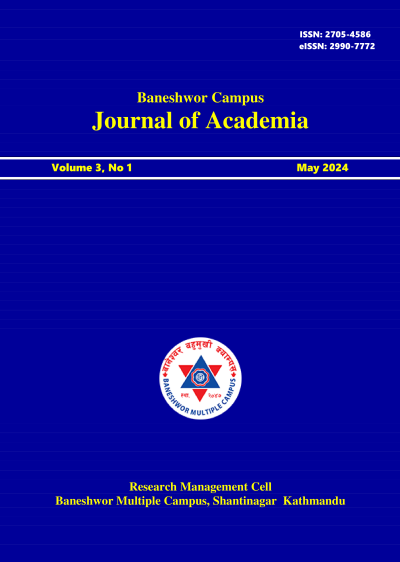Loss of Citizenship Provisions in Nepal's Citizenship Law: Addressing the Risk of Statelessness in Accordance with International Conventions
DOI:
https://doi.org/10.3126/bcja.v3i1.65658Keywords:
Citizenship, nationality, reunciation, revocation, termination, statelessnessAbstract
Citizenship denotes membership in a state, encompassing both acquisition and termination aspects. This article specifically examines the termination of citizenship in Nepal through a comparative lens. Termination can occur through voluntary means, automatic processes as per the country's laws, or governmental revocation. The study of citizenship loss is grounded in international conventions such as the Universal Declaration of Human Rights (1948), the Convention on the Reduction of Statelessness (1961), and the European Convention on Nationality (1997). Similarly, the comparative analysis extends to Nepali law including the Nepali Citizenship Act (1952), the Nepal Citizenship Act (1964), and the Nepal Citizenship Act (2006). This analysis delves into the comparative study between international conventions and Nepali citizenship laws, assessing whether the latter may potentially lead to statelessness.
Downloads
Downloads
Published
How to Cite
Issue
Section
License
Copyright (c) 2024 The Author(s)

This work is licensed under a Creative Commons Attribution-NonCommercial 4.0 International License.
CC BY-NC: This license allows reusers to distribute, remix, adapt, and build upon the material in any medium or format for non-commercial purposes only, and only so long as attribution is given to the creator.





